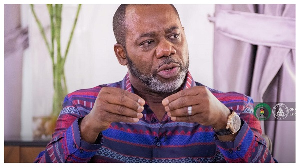When researching the Ewe and Yoruba speaking people of West Africa, I found there was not a lot of written history about these people prior to the 1950’s.
This made sense because these groups of people relied mainly on the tradition of orally handing down their history. However, I found that since the 1950’s, right up to today, a period during which these groups of people have mingled and mixed with different communities, there has still not been a lot of research into their traditions and cultures.
I started to speculate as to why this research doesn’t exist, and why there is a gap in such research, and I came up with a possible reason. The reason, which may be worth exploring, is what I call the, “cult to church gap.” My grandparents were traditionalists, and my parents eased out of the religion of their forefathers into Christianity. My generation then signified a break from the traditional religion.
A cult is defined in the dictionary as a particular system of religious worship, especially with reference to its rites and ceremonies. In these rites and ceremonies, a person, or thing, is venerated by its admirers. The church on the other hand, as defined in the original Greek Ekklesia, is, "a gathering, assembly," of a group of believers.
The period during which the gradual switch from cult to church took place created a gap in the history of these groups of people, thereby presenting two or more equally inconclusive alternatives.
The need for a more comprehensive history grows more important every day as the old dies and there is no roadmap available for the next generation.
The traditional leaders, or grass-root leaders, with representations in the positions of the, “Oba’s,” and the, “Togbui’s,” are also often times caught between the cult and the church, not knowing which one may be logically deductible from the other. These grass-root leaders are in a better position to encourage the documentation of these histories. Their efforts are crucial to the survival of the tradition and culture of these areas, as well as for preparing leaders to take their rightful place in history. If these future leaders do not know where they come from, it follows that the leadership problems plaguing Africa will continue for a long time.
Reference: https://www.vocabulary.com/dictionary/posterity https://www.compellingtruth.org/definition-church.html https://www.merriam-webster.com/dictionary/dilemma http://www.dictionary.com/browse/implication
Opinions of Thursday, 27 April 2017
Columnist: Dr. Doris O. Dzameshie



















